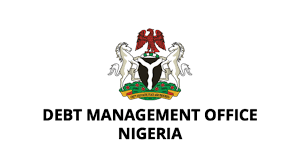Nigeria’s public debt has experienced a dramatic surge under the current administration, increasing by a staggering N57.3 trillion within the first 18 months of President Tinubu’s tenure. This represents a 65.6% increase, pushing the total debt stock from N87.38 trillion in June 2023 to N144.67 trillion by December 2024. While inheriting a substantial debt burden, including a significant Ways and Means balance from the Central Bank of Nigeria, the administration’s borrowing has accelerated dramatically, fueled by increased domestic borrowing and a steep devaluation of the naira. This rapid expansion has raised concerns about the country’s long-term fiscal sustainability and the potential burden on future generations.
A key driver of the debt increase is the sharp depreciation of the naira against the US dollar. While the total debt in dollar terms appears to have decreased, this is a deceptive metric. The naira’s fall from N770.38 to $1 in June 2023 to approximately N1,535 to $1 by the end of 2024 has significantly inflated the naira value of dollar-denominated debt. This devaluation has effectively doubled the naira equivalent of Nigeria’s foreign debt, even though the dollar amount borrowed remained relatively stable. The weakening naira has also contributed to higher inflation, which in turn puts upward pressure on domestic borrowing costs as investors demand higher returns to compensate for the eroding value of the currency.
The composition of Nigeria’s debt has also shifted significantly. External debt, which accounted for 38% of the total debt stock in June 2023, rose to nearly 49% by December 2024. This shift highlights the increasing reliance on foreign borrowing, which while potentially offering access to larger sums and lower initial interest rates, carries its own set of risks, including exchange rate volatility and potential vulnerability to global financial conditions. The increased share of external debt also raises questions about the country’s debt sustainability, particularly in the context of fluctuating oil prices and potential challenges in servicing foreign currency obligations.
A deeper examination of the domestic debt reveals that the Federal Government’s domestic debt alone has grown by over N22.1 trillion since June 2023, reaching N70.41 trillion by December 2024. A significant contributor to this increase is the conversion of the N22.7 trillion Ways and Means Advances from the CBN into tradable bonds. This restructuring, while addressing the unconventional nature of the previous CBN financing, has added significantly to the official debt stock. Furthermore, the increasing reliance on short-term borrowing through Treasury Bills, which nearly tripled during the period, suggests growing liquidity pressures on the government and a need for quick access to funds to cover budget deficits.
The breakdown of the external debt reveals a complex interplay of factors influencing its growth. While the total dollar value of external debt increased by a relatively modest 6.1%, reaching $45.78 billion by December 2024, the naira equivalent of this debt more than doubled due to the naira’s devaluation. Multilateral institutions remain the largest source of external funding, with the World Bank’s International Development Association being the single biggest creditor. Notably, the IMF’s exposure decreased significantly, likely reflecting repayments of previous emergency support. Bilateral loans from countries like China continued to grow, while commercial debt, primarily Eurobonds, also saw a notable increase, reflecting the government’s efforts to tap into international capital markets.
Despite implementing several fiscal reforms, including the removal of fuel subsidies and the unification of exchange rates, the Tinubu administration has yet to curb the rapid accumulation of debt. The rising debt burden is already straining the federal budget, with debt servicing costs consuming an increasing share of government revenue. While the government has expressed commitment to boosting revenue generation and curbing wasteful spending, achieving meaningful fiscal consolidation remains a significant challenge. Furthermore, the ongoing pursuit of new loans, such as the recent request for a $500 million loan from the World Bank for agricultural development, suggests that borrowing will continue to play a significant role in financing government programs, adding further to the debt stock and potentially exacerbating existing fiscal pressures.


